
Karon: The Serene Beachfront Escape in Phuket
Nestled along the western coast of Phuket, Karon is a tranquil haven perfect for travelers seeking both relaxation and adventure. With its pristine sands stretching nearly 4 kilometers, Karon Beach is one of the longest beaches on the island, offering ample space for sunbathing and leisurely walks along the shore. The gentle waves make it an ideal spot for swimming, while the steady breeze attracts windsurfers and parasailers alike. Beyond the beach, Karon boasts a vibrant array of dining options, from local street food stalls to high-end restaurants, ensuring every palate is satisfied. The local markets, particularly the Karon Temple Market, offer a glimpse into the authentic Thai culture, with vendors selling everything from handcrafted souvenirs to delicious Thai snacks. For those seeking nightlife, Karon doesn't disappoint. The area comes alive after sunset with lively bars and entertainment venues. Yet, it maintains a more laid-back atmosphere compared to the bustling Patong Beach, making it perfect for those who want to enjoy a night out without the overwhelming crowds. Whether you're looking to explore the natural beauty of Phuket or simply relax by the sea, Karon serves as the perfect base for your tropical getaway.
Local tips in Karon
- Visit Karon Temple Market for unique souvenirs and local snacks.
- The beach is less crowded in the early morning and late afternoon.
- Rent a scooter to easily explore nearby attractions and beaches.
- Try the local seafood at the beachfront restaurants for a true taste of Phuket.
Karon: The Serene Beachfront Escape in Phuket
Nestled along the western coast of Phuket, Karon is a tranquil haven perfect for travelers seeking both relaxation and adventure. With its pristine sands stretching nearly 4 kilometers, Karon Beach is one of the longest beaches on the island, offering ample space for sunbathing and leisurely walks along the shore. The gentle waves make it an ideal spot for swimming, while the steady breeze attracts windsurfers and parasailers alike. Beyond the beach, Karon boasts a vibrant array of dining options, from local street food stalls to high-end restaurants, ensuring every palate is satisfied. The local markets, particularly the Karon Temple Market, offer a glimpse into the authentic Thai culture, with vendors selling everything from handcrafted souvenirs to delicious Thai snacks. For those seeking nightlife, Karon doesn't disappoint. The area comes alive after sunset with lively bars and entertainment venues. Yet, it maintains a more laid-back atmosphere compared to the bustling Patong Beach, making it perfect for those who want to enjoy a night out without the overwhelming crowds. Whether you're looking to explore the natural beauty of Phuket or simply relax by the sea, Karon serves as the perfect base for your tropical getaway.
Iconic landmarks you can’t miss
Karon View Point
Discover the stunning vistas of Karon View Point in Phuket, where breathtaking ocean views meet lush landscapes for an unforgettable experience.
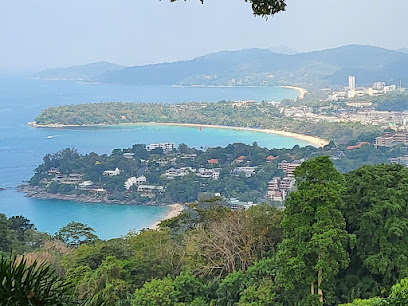
Karon Beach
Explore the serene beauty of Karon Beach in Phuket, a perfect blend of relaxation, adventure, and vibrant local culture.
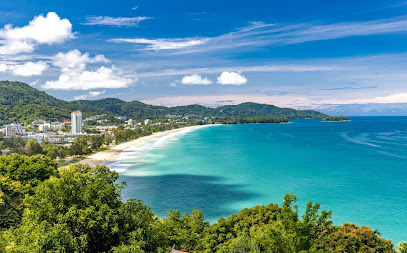
Karon Beach Roundabout
Discover the vibrant Karon Beach Roundabout, a historical landmark connecting you to the beauty and culture of Phuket's stunning coastline.
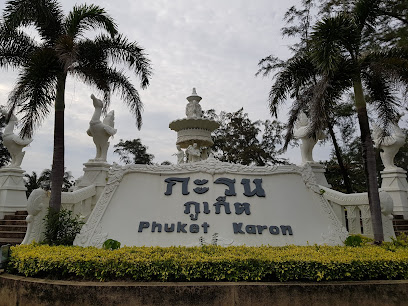
Karon Park
Explore the lush greenery and tranquil ambiance of Karon Park, a perfect retreat for relaxation and family fun in the heart of Phuket.
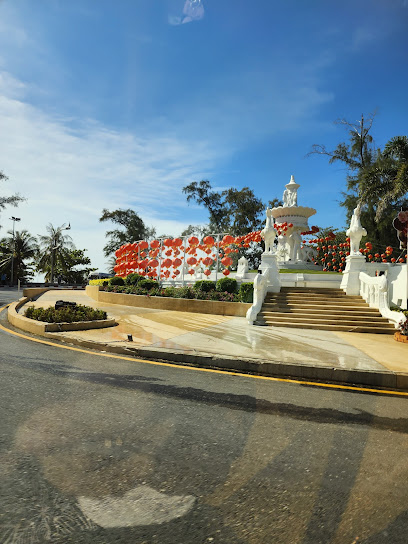
Karon Temple Market
Immerse yourself in local culture at Karon Temple Market, where vibrant stalls, delicious street food, and unique handicrafts await in Phuket.
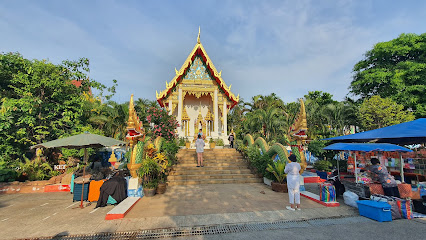
Karon Temple
Discover the serene beauty of Karon Temple, a vibrant Buddhist sanctuary in Phuket, offering cultural insights and breathtaking architecture.
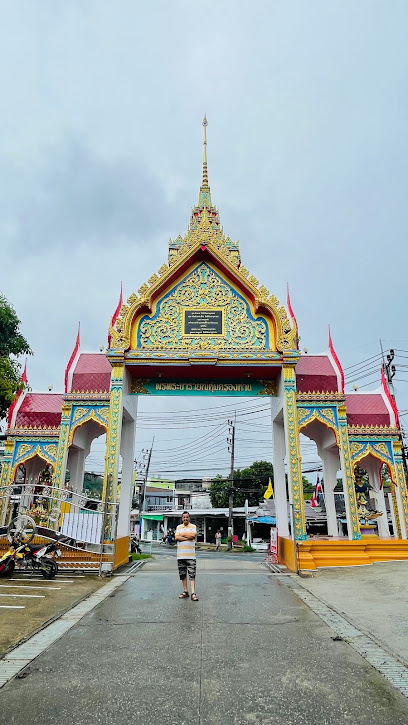
Karon Night Market
Discover the flavors and crafts of Thailand at Karon Night Market, a must-visit destination for foodies and culture enthusiasts in Phuket.
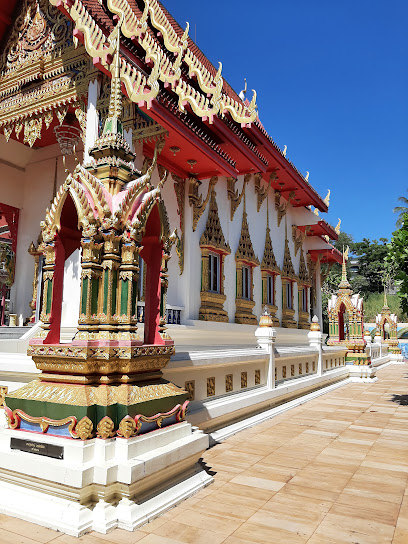
Karon beach
Discover Karon Beach, a serene paradise in Phuket, where golden sands meet turquoise waters and vibrant local culture awaits every traveler.
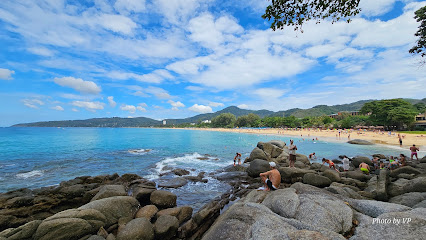
Karon Circle
Discover Karon Circle in Phuket, a stunning sculpture that showcases local artistry and culture amidst a vibrant community atmosphere.
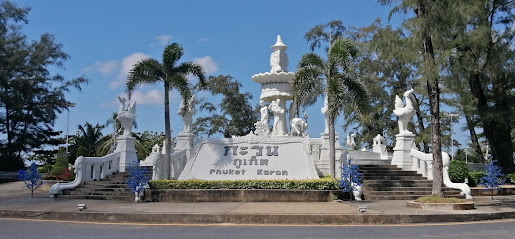
Ko pu island
Explore the tranquil beauty of Ko Pu Island, a hidden paradise in Phuket known for its pristine beaches and vibrant marine life, perfect for relaxation and adventure.
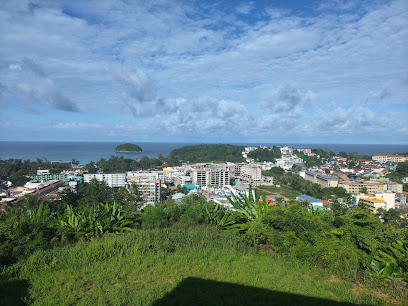
Unmissable attractions to see
Karon Park
Discover the tranquil beauty of Karon Park, a family-friendly oasis in Phuket, perfect for relaxation and outdoor activities amidst lush greenery.
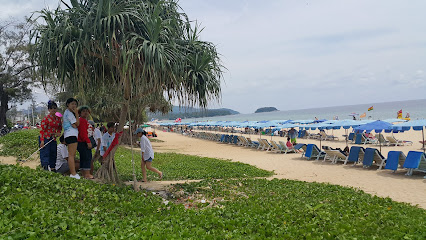
Karon Temple Market
Discover the vibrant pulse of Phuket at Karon Temple Market, where local culture meets delicious street food and unique handicrafts.
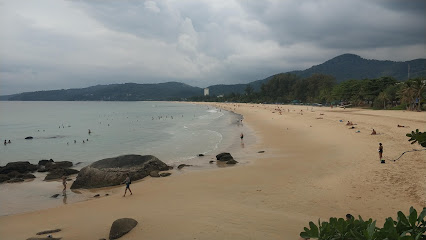
Dino Park Mini Golf & Restaurant
Discover an enchanting mini-golf adventure amid dinosaur wonders at Dino Park Mini Golf & Restaurant in Phuket, perfect for families and friends.
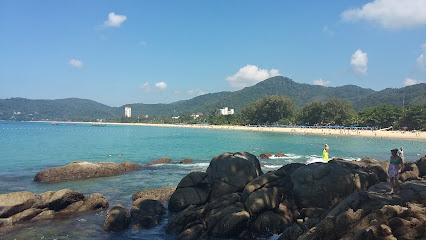
Khlong Bang La Park
Explore the tranquility of Khlong Bang La Park in Phuket, a perfect escape with lush landscapes and serene water features.
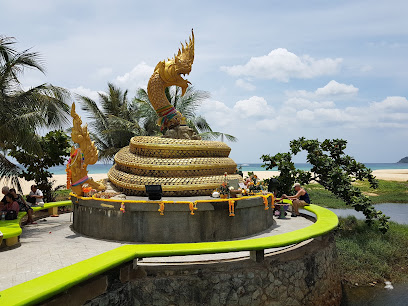
Karon Temple
Discover serenity at Karon Temple, a stunning Buddhist sanctuary in Phuket offering rich cultural insights and breathtaking architecture.
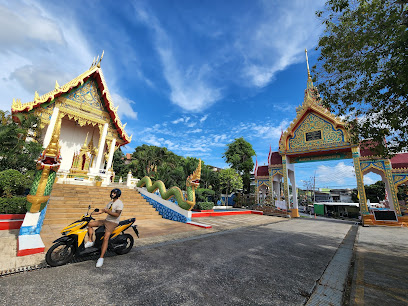
Kata Beach Community Park
Discover the natural beauty and vibrant atmosphere of Kata Beach Community Park, a serene escape in Phuket perfect for relaxation and recreation.
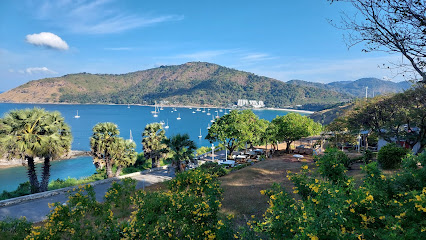
Thavorn Palm Beach pet zoo
Discover the joy of animal interactions at Thavorn Palm Beach Pet Zoo, a family-friendly attraction in the heart of Phuket's tropical beauty.
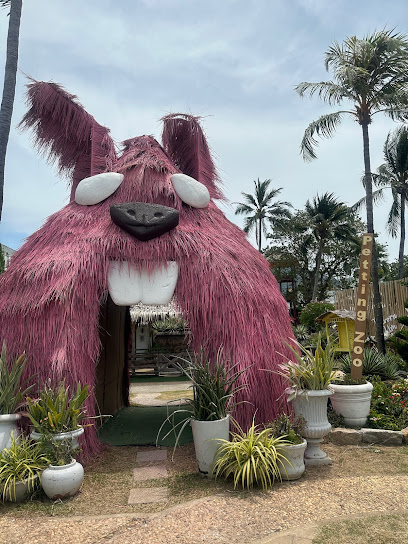
Karon Magica Maria Saly Giulio
Explore Karon Magica Maria Saly Giulio, a captivating tourist attraction in Phuket that offers cultural charm and stunning natural beauty for every traveler.
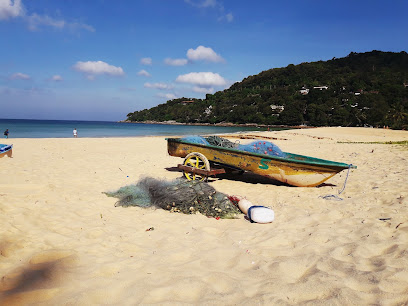
Essential places to dine
Mama Jin Restaurant
Discover authentic Thai cuisine at Mama Jin Restaurant in Karon, Phuket - where every dish tells a story of flavor and tradition.
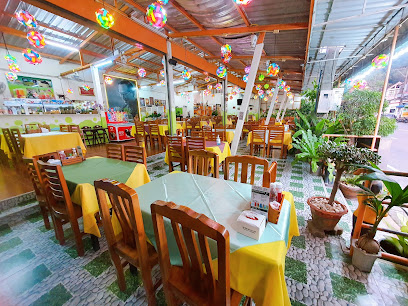
Cappadocia Turkish Restaurant Karon Beach Phuket
Experience authentic Turkish cuisine at Cappadocia Restaurant in Karon Beach, Phuket - where every dish tells a story.
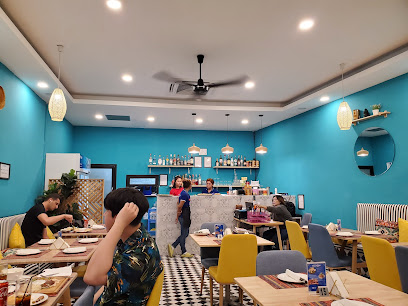
On The Rock Restaurant
Experience exquisite dining with breathtaking sea views at On The Rock Restaurant in Karon, Phuket – where culinary delights meet stunning landscapes.
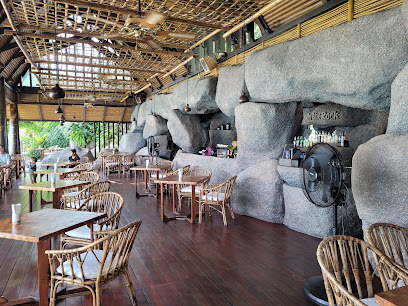
Napoli in Vespa Phuket Pizza-Restaurant
Experience the essence of Italy at Napoli in Vespa - where authentic pizza meets fresh seafood in the heart of Phuket.
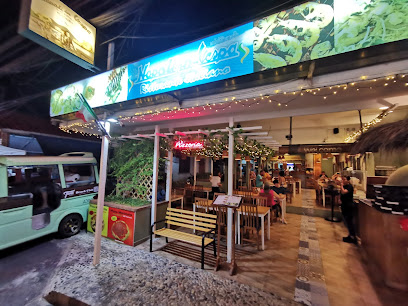
Karlsson Restaurant and Steakhouse - Karon, Phuket
Experience the best of Scandinavian cuisine with succulent steaks and traditional Swedish dishes at Karlsson Restaurant in Karon, Phuket.
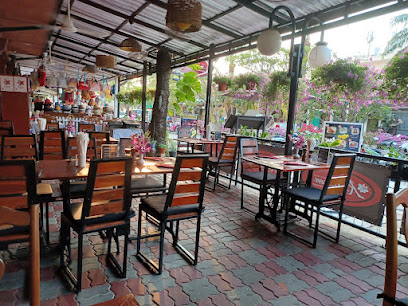
PINTO KARON
Experience authentic Thai cuisine at Pinto Karon in Phuket - where tradition meets flavor in a vibrant setting.
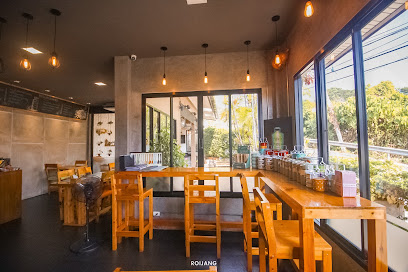
Two Chefs Karon Beach Branch
Experience delectable dining at Two Chefs in Karon Beach - where local flavors meet international cuisine in a vibrant setting.
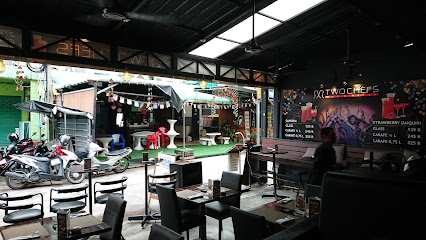
Friendly Restaurant
Experience authentic Thai cuisine at Friendly Restaurant in Karon, Phuket – where every dish tells a story.
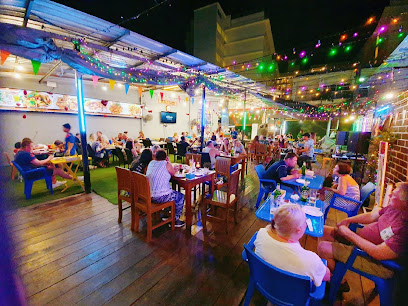
Coast Beach Club & Bistro Phuket
Experience breathtaking ocean views and exquisite cuisine at Coast Beach Club & Bistro Phuket, where every meal is a delightful adventure.
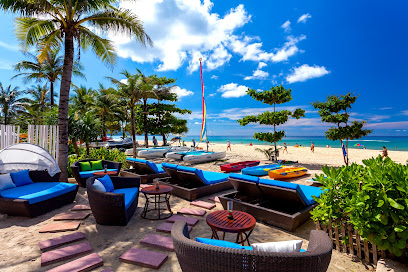
En Vogue Restaurant
Discover exquisite flavors at En Vogue Restaurant in Karon - where Thai cuisine meets international elegance amidst stunning views.
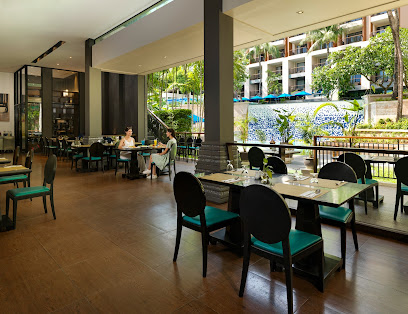
Markets, malls and hidden boutiques
Bazar Karon
Explore the bustling Bazar Karon for a unique shopping experience infused with Thai culture, local crafts, and delicious street food.
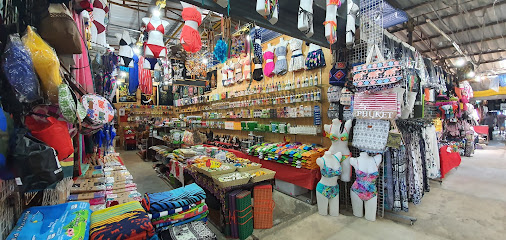
Karon Night Market
Experience the vibrant culture of Thailand at Karon Night Market, where delicious street food meets unique shopping in a lively atmosphere.
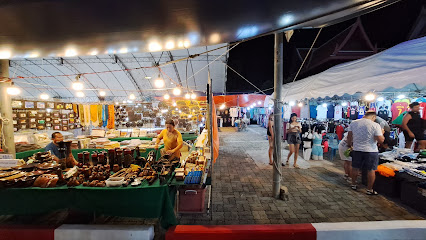
Unique Fashion
Tailor your experience in Phuket with Unique Fashion, where personalized clothing meets exquisite craftsmanship and local flair.
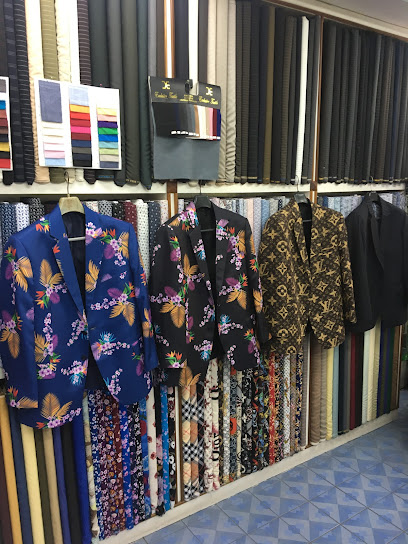
Karon Avenue
Discover a shopping haven at Karon Avenue, where vibrant stores, delectable dining, and local culture come alive in the heart of Phuket.
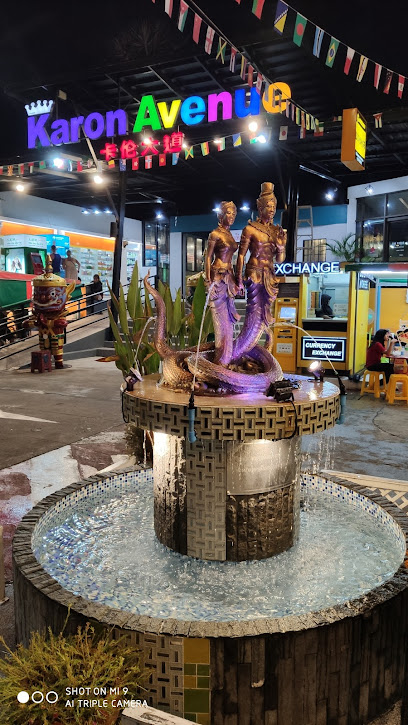
Green Lantern Kata | Weed - Cannabis Dispensary Store Shop
Discover the vibrant cannabis culture at Green Lantern Kata, a top dispensary in Phuket offering quality products and expert guidance.
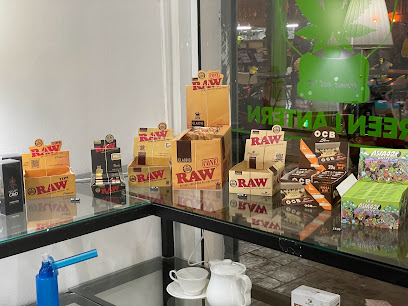
Kata noi beach
Kata Noi Beach: A Tropical Paradise in Phuket with Golden Sands, Clear Waters, and Vibrant Local Culture.
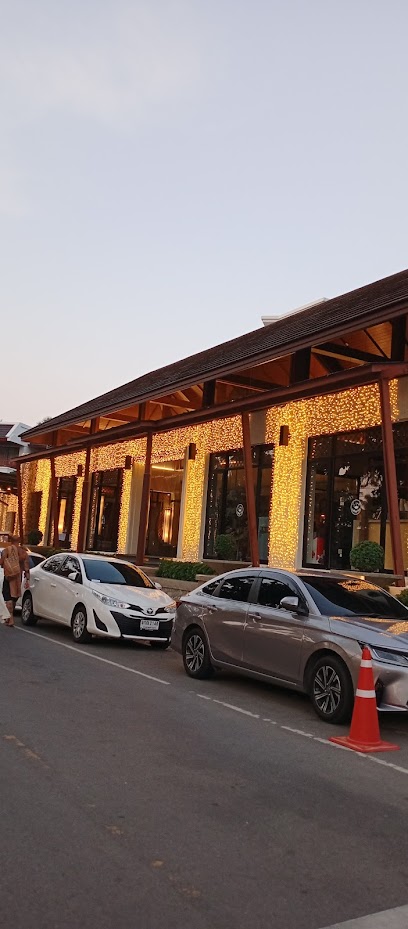
Once in Phuket @Karon Beach
Explore a treasure trove of unique souvenirs at Once in Phuket @ Karon Beach, where every item tells a story of Thailand's rich culture.
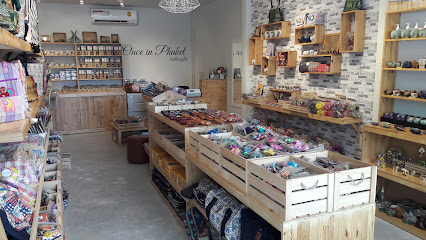
Pashtoosh art gallery 2
Explore Pashtoosh Art Gallery in Karon, Phuket, for unique souvenirs and local art that capture the spirit of Thailand.
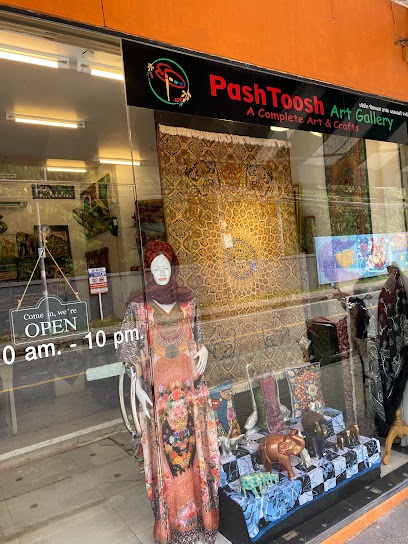
La Vida - Karon
Discover unique fashion at La Vida - Karon, where local design meets tropical style in the heart of Phuket.
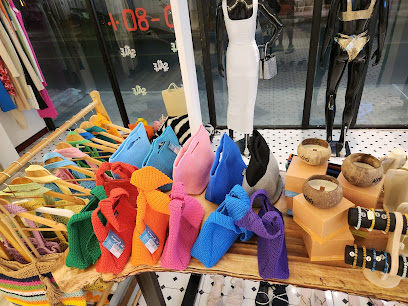
BULAN Thailand - Karon Beach
Explore the latest in tropical fashion at BULAN Thailand, nestled in Karon Beach's serene landscape, perfect for your next vacation wardrobe refresh.
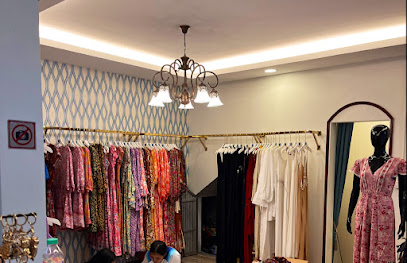
Essential bars & hidden hideouts
Walkabout Sports Bar & Restaurant
Experience the thrill of live sports and a diverse menu at Walkabout Sports Bar & Restaurant, the ultimate destination in Karon Beach, Phuket.
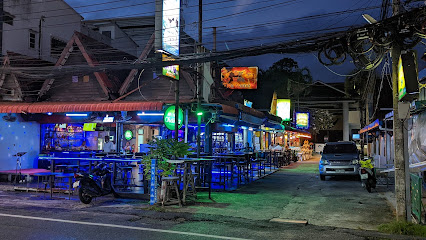
Karon Aussie Bar
Discover Karon Aussie Bar: a lively spot in Phuket offering delicious food, refreshing drinks, and a friendly atmosphere for an unforgettable night.
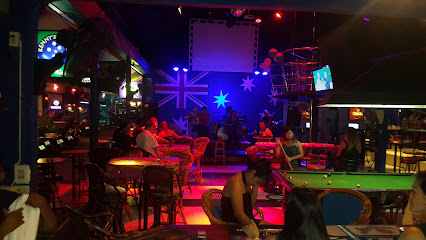
Sutin Bar
Experience the vibrant nightlife of Karon at Sutin Bar, a must-visit destination for cocktails, live music, and a lively atmosphere.
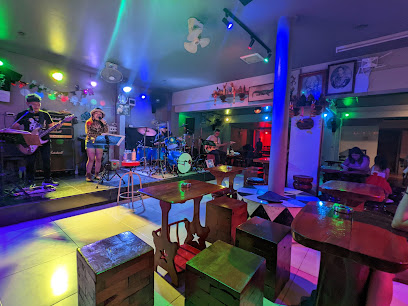
The Garage OG Best Bar In Karon ,Best Live Music
Discover the vibrant nightlife at The Garage OG in Karon, Phuket – a top bar for live music and unforgettable experiences.
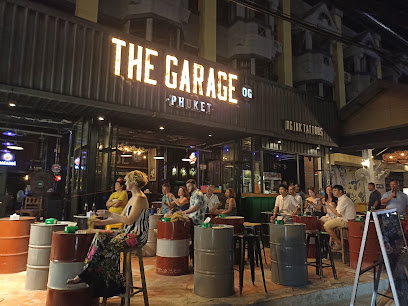
Bar With No Name
Discover the vibrant nightlife of Karon at the Bar With No Name, where signature cocktails and a lively atmosphere await you.
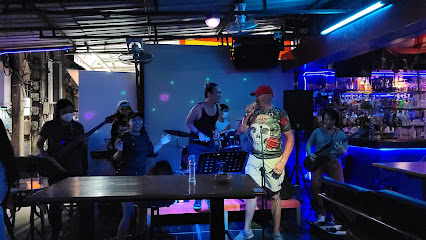
Sanook Sports Bar
Discover the lively Sanook Sports Bar in Karon Beach, where great drinks, live sports, and a vibrant atmosphere await.
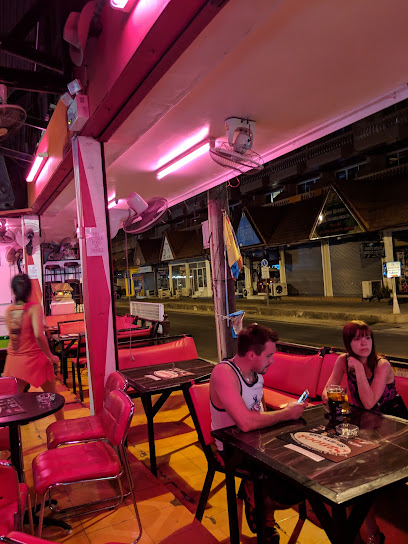
OCEAN BAR Karon
Experience the perfect blend of relaxation and nightlife at Ocean Bar Karon, where stunning views meet refreshing drinks and live entertainment.
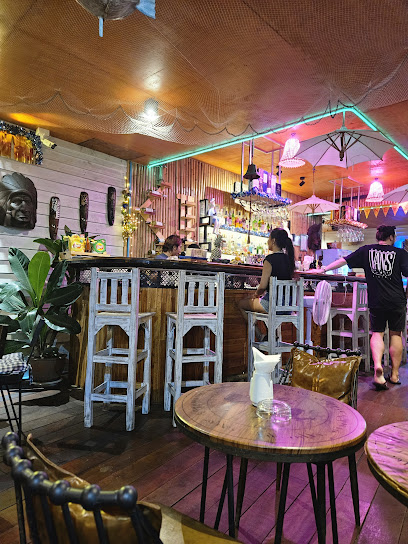
Nans' Bar
Experience the vibrant nightlife of Karon at Nans' Bar, where great drinks and lively atmosphere create unforgettable memories.
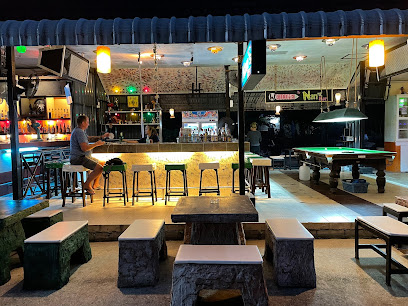
Starz Rooftop Bar & Lounge
Experience breathtaking views and exquisite cocktails at Starz Rooftop Bar & Lounge in Karon, Phuket – the ultimate nightlife destination.
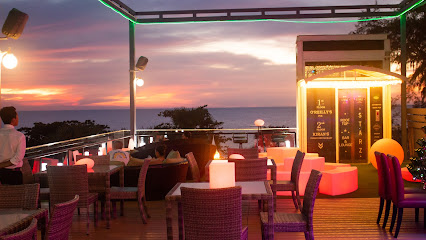
Mos Bar
Experience the vibrant nightlife at Mos Bar in Karon, Phuket, offering creative cocktails, stunning ocean views, and a lively atmosphere.
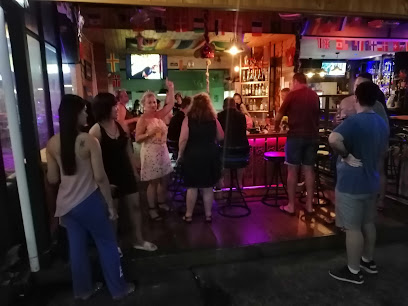
Local Phrases
-
- Helloสวัสดี
[sawasdee] - Goodbyeลาก่อน
[laa kon] - Yesใช่
[chai] - Noไม่
[mai] - Please/You're welcomeโปรด/ยินดีต้อนรับ
[proat/yin dee dton rub] - Thank youขอบคุณ
[kop khun] - Excuse me/Sorryขอโทษ
[kor toht] - How are you?สุขสันต์ไหม
[suk san mai] - Fine. And you?สบายดีค่ะ คุณล่ะ
[sabai dee ka kun la] - Do you speak English?คุณพูดภาษาอังกฤษได้ไหม
[kun poot paa saa ang grit dai mai] - I don't understandฉันไม่เข้าใจ
[chan mai khao jai]
- Helloสวัสดี
-
- I'd like to see the menu, pleaseฉันอยากดูเมนู โปรด
[chan yak doo menu proat] - I don't eat meatฉันไม่กินเนื้อ
[chan mai gin neuua] - Cheers!ชนแก้ว
[chon gaeo] - I would like to pay, pleaseฉันอยากจ่ายเงิน โปรด
[chan yak jai ngern proat]
- I'd like to see the menu, pleaseฉันอยากดูเมนู โปรด
-
- Help!ช่วยด้วย
[chuay duay] - Go away!ไปไกลๆ
[bpai glai glai] - Call the Police!โทรตำรวจ
[tor tamruat] - Call a doctor!โทรหมอ
[tor mor] - I'm lostฉันหลงทาง
[chan long tang] - I'm illฉันไม่สบาย
[chan mai sabai]
- Help!ช่วยด้วย
-
- I'd like to buy...ฉันอยากซื้อ...
[chan yak seuu...] - I'm just lookingฉันแค่มอง
[chan kae mong] - How much is it?ราคาเท่าไร
[ra kaa tao rai] - That's too expensiveแพงเกินไป
[pang geen bpai] - Can you lower the price?ลดราคาได้ไหม
[lot ra kaa dai mai]
- I'd like to buy...ฉันอยากซื้อ...
-
- What time is it?ตอนนี้กี่โมง
[ton nee gee mong] - It's one o'clockตอนนี้เป็นโมง
[ton nee bpen mong] - Half past (10)สามสิบครึ่ง
[sam sip krueng] - Morningเช้า
[chao] - Afternoonบ่าย
[bai] - Eveningเย็น
[yen] - Yesterdayเมื่อวาน
[meua wan] - Todayวันนี้
[wan nee] - Tomorrowพรุ่งนี้
[proong nee] - 1หนึ่ง
[neung] - 2สอง
[song] - 3สาม
[sam] - 4สี่
[see] - 5ห้า
[ha] - 6หก
[hok] - 7เจ็ด
[jet] - 8แปด
[bpaeht] - 9เก้า
[gao] - 10สิบ
[sip]
- What time is it?ตอนนี้กี่โมง
-
- Where's a/the...?...อยู่ที่ไหน
[...yu tee nai] - What's the address?ที่อยู่คืออะไร
[tee yu keu a rai] - Can you show me (on the map)?ช่วยแสดงให้ฉันดูได้ไหม
[chuay sa daeng hai chan doo dai mai] - When's the next (bus)?รถเมล์ต่อไปเมื่อไหร่
[rot mae tor bpai meua rai] - A ticket (to ....)บัตรโดยสาร (ไป...)
[bat doy saan (bpai...)]
- Where's a/the...?...อยู่ที่ไหน
History of Karon
-
Karon's history can be traced back to the early inhabitants who settled along the coast, primarily focusing on fishing and trade. As part of Phuket Island, Karon was influenced by various coastal trading routes that connected Southeast Asia with India and beyond. The area's access to the Andaman Sea made it a natural hub for maritime activities.
-
During the 19th century, Karon, like the rest of Phuket, experienced significant changes due to the tin mining boom. The influx of Chinese immigrants brought new cultural influences, leading to a multicultural society. This period marked the beginning of Karon's development as a settlement, with the establishment of local businesses catering to miners and traders.
-
World War II had a considerable impact on Karon and Phuket as a whole. The island was occupied by Japanese forces, and the local economy faced challenges during the war years. Post-war, Karon began to see a revival as tourism started to emerge, transforming the area into a popular destination for visitors seeking pristine beaches and a more laid-back atmosphere compared to Patong.
-
The 1980s marked a pivotal turn for Karon with the rise of tourism. The development of resorts and hotels attracted visitors from around the world, changing the landscape of the neighborhood. This growth also fostered the preservation of local culture, as Karon became known for its traditional Thai hospitality, local cuisine, and vibrant markets.
-
Karon is home to several cultural festivals that reflect its rich heritage. The Vegetarian Festival, celebrated by the local Chinese community, showcases traditional rituals and food. Additionally, Karon's Buddhist temples, such as Wat Suwan Khiri Khet, play a significant role in community life, providing a glimpse into the spiritual practices that have been part of the area for generations.
Karon Essentials
-
Karon is located approximately 20 kilometers from Phuket Town and about 45 kilometers from Phuket International Airport. The most common ways to reach Karon include taking a taxi, which is the most convenient option, or using a shared minivan service that operates from the airport and major tourist areas. If you're traveling from other neighborhoods like Patong or Kata, local tuk-tuks and taxis are readily available. Public buses, known as songthaews, can also take you to Karon, although they may require transfers.
-
Karon is relatively compact, making it easy to explore on foot. For longer distances, tuk-tuks and taxis are available, although negotiating the fare before starting your journey is advisable. Motorbike rentals are popular, providing flexibility to explore nearby beaches and attractions. Bicycles can also be rented in Karon, offering a leisurely way to take in the scenery. However, public transport options are limited, so plan your routes in advance.
-
Karon is generally considered safe for tourists, but standard precautions are advised. Be aware of your surroundings, especially in crowded areas. Petty crimes such as pickpocketing can occur, particularly on the beach and in busy markets. While there are no specific high-crime areas, it's best to avoid poorly lit streets at night and keep your belongings secure. Always use reputable transportation services to ensure your safety.
-
In case of emergencies, dial 191 for police assistance, 1669 for medical emergencies, and 199 for fire emergencies. There are hospitals and clinics in Karon that can provide medical care. It is advisable to have travel insurance that covers emergency situations. For minor health issues, pharmacies are available throughout the area. Familiarize yourself with the location of the nearest medical facility to your accommodation.
-
Fashion: Do dress modestly, especially when visiting temples and local markets. Avoid wearing swimwear away from the beach. Religion: Do respect local customs and traditions; always remove shoes when entering temples. Public Transport: Do be polite and offer your seat to elders. Don’t engage in loud conversations. Greetings: Do greet locals with a friendly smile and a 'Sawasdee' (hello). Eating & Drinking: Do try local street food and be open to new flavors. Don’t waste food or drink excessively in public.
-
To experience Karon like a local, visit the Karon Night Market for authentic street food and local crafts. Engage with vendors and locals to learn about their lives and the culture. Explore the quieter beaches, such as Karon Noi, for a more relaxed atmosphere. Participate in local festivals if your visit coincides with one, such as the Vegetarian Festival. Consider taking a cooking class to learn about Thai cuisine firsthand.
-
When visiting Buddhist temples in Karon, it's important to dress respectfully. Cover your shoulders and knees, and women should avoid tight-fitting clothes. Always show respect by not pointing your feet at Buddha images or monks, and never climb on temple structures. When interacting with locals, be polite and avoid discussing sensitive topics like politics or the monarchy.
-
Stay hydrated and use sunscreen, as Karon can be quite hot. Be cautious with street food; choose stalls that appear clean and busy. It's advisable to carry basic medications for common ailments. Check if your vaccinations are up to date before traveling, especially for diseases like Hepatitis A and Typhoid.
Nearby Cities to Karon
-
Things To Do in Krabi
-
Things To Do in Trang
-
Things To Do in Surat Thani
-
Things To Do in Nakhon Si Thammarat
-
Things To Do in Langkawi
-
Things To Do in Satun
-
Things To Do in Ranong
-
Things To Do in Koh Samui
-
Things To Do in Chumphon
-
Things To Do in George Town
-
Things To Do in Penang
-
Things To Do in Ipoh
-
Things To Do in Medan
-
Things To Do in Kota Bharu
-
Things To Do in Cameron Highlands









